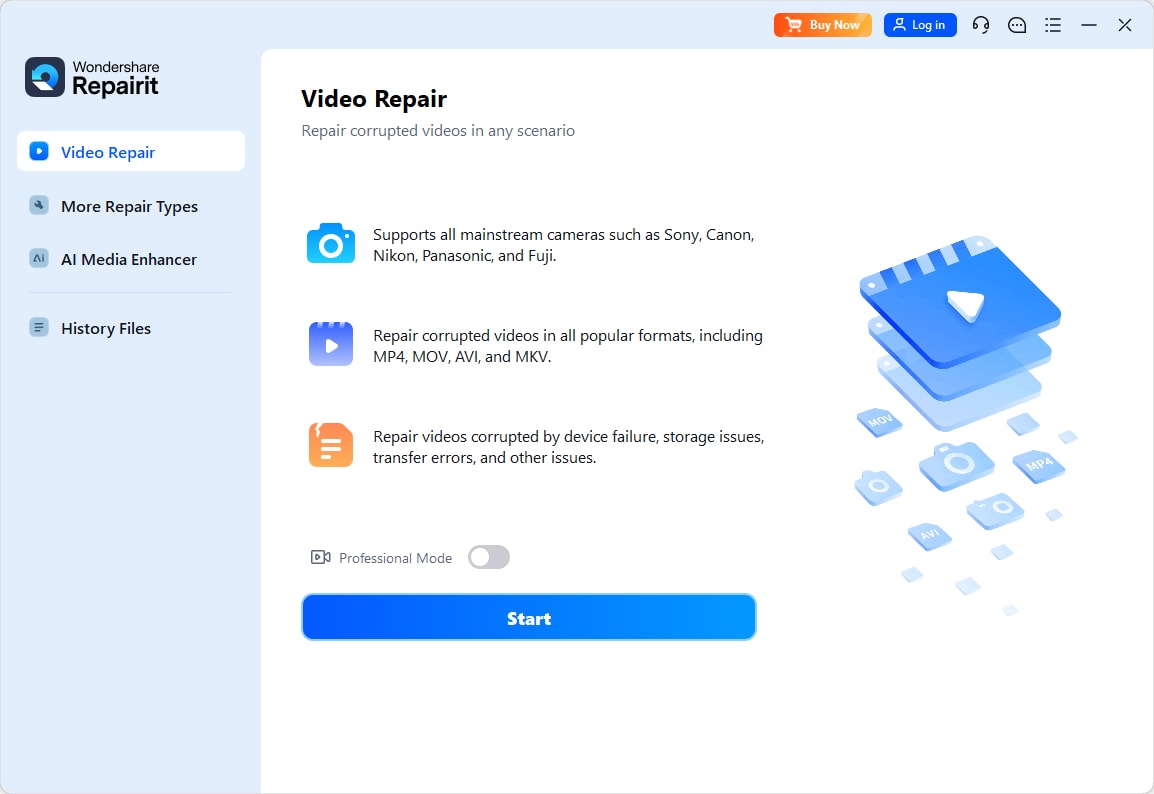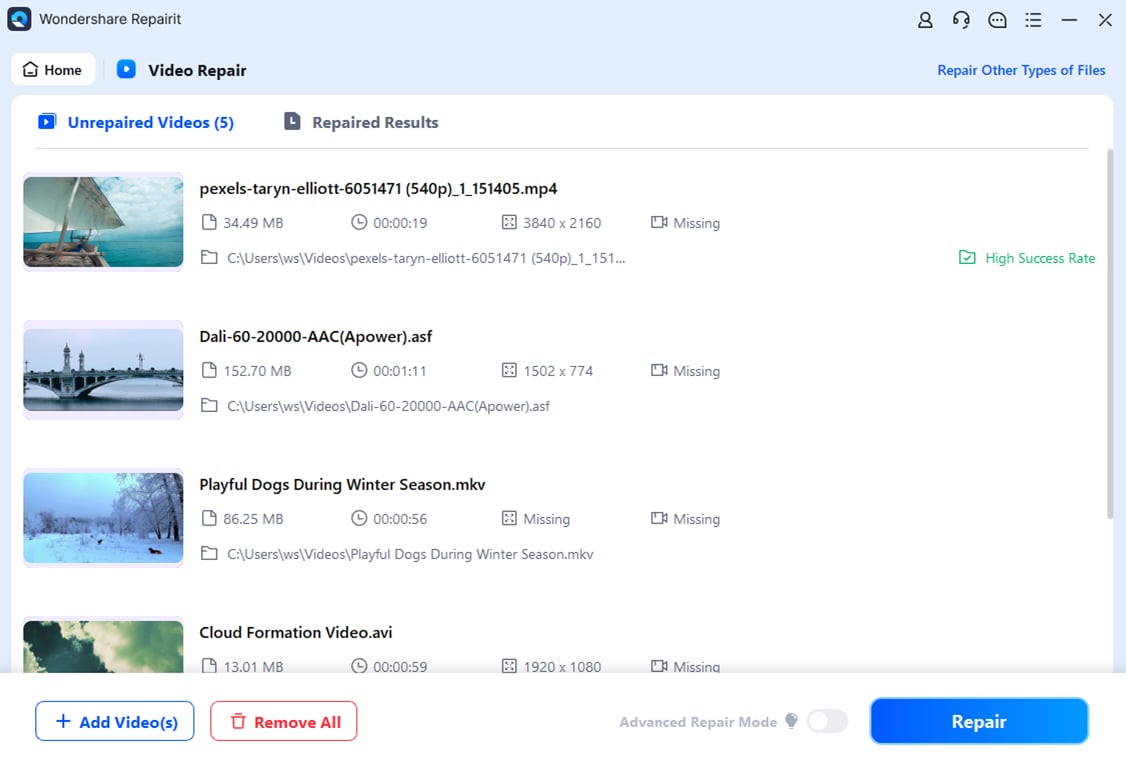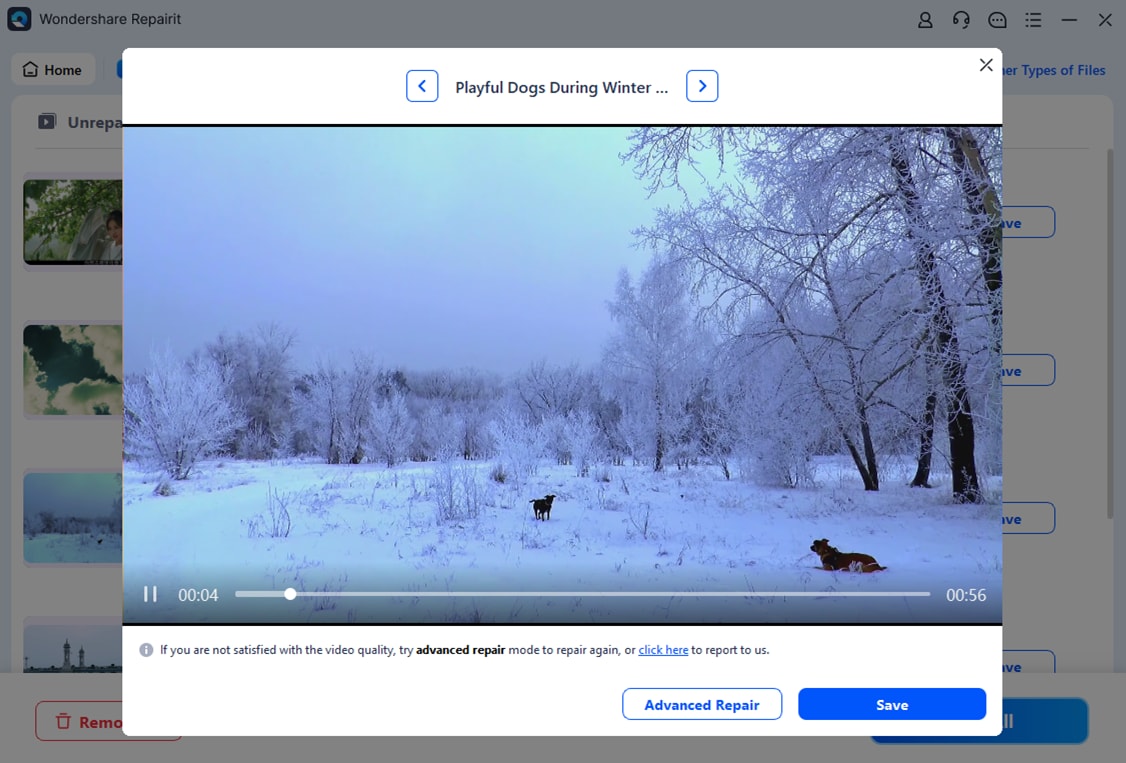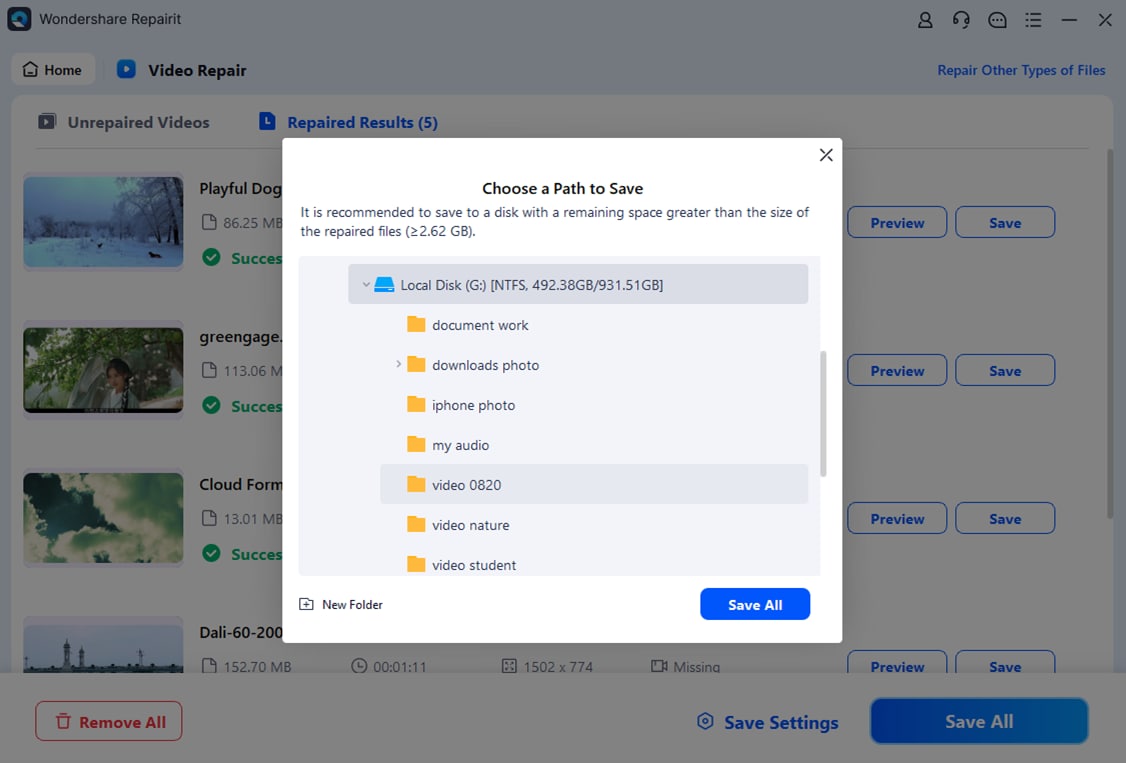Fix Sony Camera “Unable to Display” Error

Are you getting annoyed because of the frustrating message “Unable to Display” on your Sony camera? You’re not alone. Many users struggle with this issue every day. It’s a common Sony problem that can happen for several reasons.
In this guide, we’ll answer the question, “How do I fix my Sony camera unable to display error” and provide easy steps to troubleshoot and fix the problem. Whether it’s a display glitch or a card issue, we’ve got you covered. Keep reading to learn how to get your Sony camera back in action.
In this article
Part 1. Why Does My Sony Camera Say "Unable to Display"?
The “Unable to Display” error on your Sony camera usually means there’s an issue with viewing the files stored on your SD card. Here are the most common causes of this error:
- Your camera may not recognize certain files, especially if they were edited or saved in an unsupported format.
- Photos or videos might get corrupted if the SD card is removed while saving or if there’s a problem during file transfer.
- A faulty or damaged SD card can prevent the camera from displaying files properly.
- If you’ve moved or deleted files from the SD card using a computer, the camera may still try to access them, leading to the error.
- Using an SD card that doesn’t meet your camera’s specifications can cause compatibility issues.
Part 2. 3 Reliable Methods to Fix “Unable to Display” Sony Camera Error
Now that you know the common causes of the "Unable to Display" error on your Sony camera, it's time to explore the quick solutions. Fortunately, this issue can be done with a few simple steps.
Here are the 3 reliable methods to fix the “Unable to Display” error and get your camera working smoothly again.
Method 1. Export Videos from Camera SD Card
If your Sony camera shows the “Unable to Display” error, one way to troubleshoot is by exporting your videos to a computer. This method helps you determine if the issue lies with the camera’s playback system or the SD card itself. By transferring the files, you can check if the videos are still viewable and intact.
Follow the steps below to safely export and view your videos.
For Mac Users:
Step 1: Insert the Sony SD card into your Mac device.
Step 2: Open Finder, and you’ll see the SD card (External Disks).
Step 3: Navigate to the folder on the SD card where your camera stores videos (usually in "DCIM" or a camera-specific folder).
Step 4: Click to select the videos you want to export. Right-click and choose Copy.

Step 5: See the folder where you want to save the videos on your Mac. Right-click and choose Move Items Here.

Step 6: Open the folder where you saved the videos and play them to ensure they were successfully exported.
For Windows Users:
Step 1: Tap Win+E to view File Explorer. Find the SD card storage listed under This PC or Devices and Drives.
Step 2: Navigate to the folder on the SD card where your camera stores videos. Right-click the videos you want to export and choose Copy.

Step 3: Go to the folder where you want to save the videos on your computer. Right-click and choose Paste.

Method 2. Format the SD Card in Your Sony Camera
If you're still seeing the "Unable to Display" error on your Sony camera, formatting the SD card might be the solution. Sometimes, improper formatting can cause issues with the camera's ability to display images or videos. By formatting the SD card directly in your camera, you can clear any errors and restore it to its original state.
Here’s how to format your SD card:
Step 1: Insert your SD card storage into the camera.
Step 2: Turn on the camera and press the Menu button.
Step 3: Go to Settings or Setup.
Step 4: Select Memory Card Tool. Then, click Format and confirm by pressing OK.

Method 3. Reset App Preferences in Sony Camera
Resetting your Sony camera’s app preferences can help repair software glitches affecting image display. Keep in mind that this procedure will completely erase all your saved settings.
Here’s how to reset app preferences in Sony camera settings:
Step 1: Press the Menu button.
Step 2: Use the arrows or control wheel to go to Setup.
Step 3: Scroll down and select Setting Reset.
Step 4: Choose Setting Reset and confirm to proceed.

Step 5: Wait for the Sony camera to finish the reset process.
Part 3. Check for Video File Corruption and Repair With Video Repair Tool
Have you tried the above solutions, but the error persists? Do not worry. Your file may be corrupted. To confirm this, start by taking new videos and checking if they display properly on your camera. If the new videos show up fine but older ones don’t, the older files might be corrupted.
To fix corrupted videos, you can use Repairit Video Repair, a tool that repairs damaged video files without losing data. This offers a fast, simple, and secure solution for repairing video files quickly. It fully functions on both Mac and Windows PCs.
Here are some of its best attributes:

-
Repair damaged videos with all levels of corruption, such as video not playing, video no sound, out-of-sync video or audio, playback errors, header corruption, flickering video, missing video codec, etc.
-
Repair full HD, 4K, and 8K videos and support 18 popular formats, including MOV, MP4, M2TS, INSV, M4V, WMV, MPEG, ASF, etc.
-
Repair damaged or corrupted videos caused by video compression, system crash, video format change, etc.
-
Repair critically damaged or corrupted videos available on SD cards, mobile phones, cameras, USB flash drives, etc.
-
Repairit has a quick and advanced scanning mode. You can use either depending on the level of corruption the video file has undergone.
-
No limit to the number and size of the repairable videos.
-
Support Windows 11/10/8/7/Vista, Windows Server 2003/2008/2012/2016/2019/2022, and macOS 10.12~macOS 15.
If your older videos are corrupted, follow these steps to troubleshoot further.
Step 1: Open Repairit Video Repair. Click +Add to input the corrupted video.

Step 2: Click Repair to start the easy troubleshooting process.

For severely damaged videos, select Advanced Repair. Add a sample video to easily upgrade the repair quality.

Step 3: You can preview the repaired videos before keeping them in a folder. If it’s good enough, click Save and save it in its saving location path.

Conclusion
The “Unable to Display” error on your Sony camera can be caused by various factors. Fortunately, there are easy fixes to fix this problem, including exporting videos, formatting the SD card, and resetting app preferences. If the issue persists, your files may be corrupted. In such cases, using a video repair tool like Repairit can help restore damaged files.
FAQ
How can I fully avoid the "Unable to Display" issue in the future?
Regularly backup your Sony video files to prevent data loss. Use high-quality, compatible memory cards, and make sure to safely eject the card when transferring files. Also, ensure that your camera’s firmware is always up to date.Can third-party memory cards cause the "Unable to Display" error?
Yes. Using low-quality or incompatible third-party memory cards may result in issues like the "Unable to Display" error. It's recommended to use official or trusted brands for memory cards.Why does my Sony camera show the “Unable to Display” error even after I replace the memory card?
If replacing the memory card doesn’t resolve the issue, the problem might be with the camera’s internal memory or a software malfunction. In such cases, reset the camera to its default settings or check for any available firmware updates.


 ChatGPT
ChatGPT
 Perplexity
Perplexity
 Google AI Mode
Google AI Mode
 Grok
Grok

